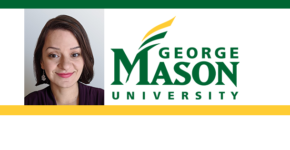 How you ask a sensitive question can be just as important as why.
How you ask a sensitive question can be just as important as why.
Einav Hart, assistant professor of management at the George Mason University School of Business, explains why.
Einav Hart is an assistant professor of management at the George Mason University School of Business. Her research interests include negotiation, trust, and ethics. Previously, Hart was a postdoctoral researcher at the University of Pennsylvania, and a data scientist at Uber; she holds a PhD from the Hebrew University of Jerusalem. Her work has been published in Organizational Behavior and Human Decision Processes, Psychological Science, and others, and reported in media outlets such as The New York Times, the Wall Street Journal, and Freakonomics.
Why Should We Ask More Questions?
Sometimes, the information we most need to know is only obtainable through asking a “sensitive question” – one that touches upon potentially uncomfortable issues such as salary or personal history.
We tend to refrain from asking these questions for fear of offending others. In a research study, even when we paid people to ask sensitive questions, most wouldn’t do it. Our studies show, however, that people who were asked sensitive questions did not develop negative impressions of the asker. That is, people often overestimate the costs of asking, and are too reluctant to ask sensitive questions.
Of course, it matters how you ask the question. Just because you ask a question, does not mean you will get a truthful answer. Certain types of questions are likely to elicit less-than-honest responses (if at all). For example, leading questions that seem to imply what the “right” answer is – “You already finished the work, right?” – are not the best way to get at the truth. This is because the respondent might just tell you what they think you want to hear—rather than the truth. Instead, ask more open-ended questions that do not signal your own assumptions.
While sensitive questions may feel intrusive, they can also signal that you care about the person you’re talking to. They can even be the best entry point for building a closer bond with that person. Asking the right question in the right way enables people to increase the likelihood of truthful responses as well as improve relationships.
Read More:
Website: http://EinavH.art
Relevant publications:
https://hbr.org/2020/11/the-case-for-asking-sensitive-questions
https://www.sciencedirect.com/science/article/abs/pii/S0749597820304003
https://www.sciencedirect.com/science/article/pii/S2352250X22001026

Comments
One response to “Einav Hart, George Mason University – Why Should We Ask More Questions?”